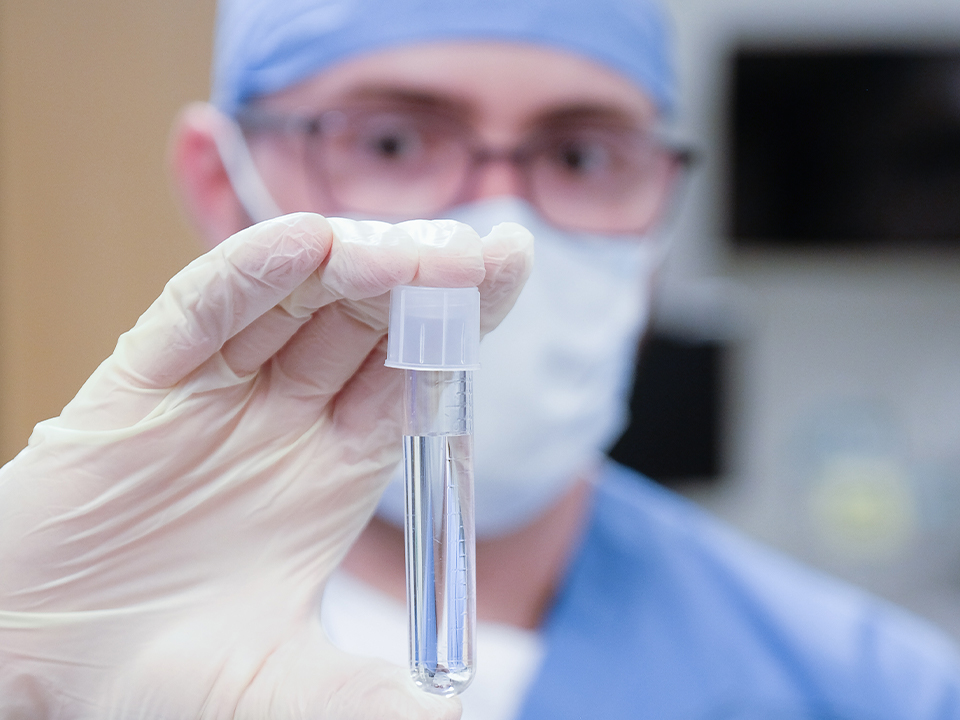Visit us in San Francisco
Academic standards. Pioneering research. Personalized care. Start your journey at the UCSF Center for Reproductive Health, located in Northern California's San Francisco Bay Area.
A semen analysis is an important part of a basic infertility work-up, and evaluates the potential of the sperm to reach and fertilize the egg. The results of this test help you and your doctor determine the optimal course of treatment.
At CRH, we perform semen analyses on-site in our andrology lab. Semen analysis appointments can be made Monday through Friday, and will be scheduled by your Care Team. Prior to your appointment, please abstain from ejaculation for 2-4 days. Please let your doctor know if you are a frequent hot tub or sauna user, have had a fever of > 100°F or illness in the past 2-3 months, smoke cigarettes or marijuana, or are taking any medication regularly.
Your appointment will take place at the CRH office. You will check in at the front desk with a photo ID and will be taken to a private room for the semen collection. You will be provided with a specimen cup and label and shown where to leave the cup when collection is complete.
You also have the option to collect the specimen at home and bring it in to the CRH. If you choose to do this, we will still need to schedule you for a specific time to drop off the sample so that we can process it. You must also be able to bring the specimen to our clinic from your home within 1 hour. Please contact your Care Team for further instructions if you prefer this option.

Volume: Normal range > 1.5 mL
A semen sample is composed of seminal fluid, which is produced by several different glands in the male reproductive tract, and sperm, which is produced in the testicles. A low volume can be caused by several different factors, including retrograde ejaculation (semen going into the bladder instead of out of the body) or a blockage in one of the ducts of the reproductive tract.
Concentration: Normal range > 15 million/mL
This measures the total number of sperm in the sample. Low sperm counts can be caused by decreased production of sperm in the testicles, or by blockage in the reproductive tract that prevents the sperm from being released out of the body.
Motility: Normal range > 40%
This measures the percentage of sperm that are moving in the sample. Motility is important in allowing the sperm to travel through the cervix, uterus and fallopian tubes to reach the egg, and in penetrating through the egg to fertilize it. Part of the evaluation of motility includes an assessment of progression, which can range from 0 (non-motile) to 4 (moving in a fast, forward direction).
Morphology: Normal range > 4%
This measures what percentage of sperm have a normal shape. Morphology is most important in determining what method to use to fertilize eggs in an IVF cycle. Morphology is not predictive of chances of natural conception or pregnancy in an IUI cycle.
If any of the above parameters are abnormal, your doctor may ask you to repeat the semen analysis and may order additional bloodwork. If appropriate, we will refer you to a reproductive urologist for evaluation.
Academic standards. Pioneering research. Personalized care. Start your journey at the UCSF Center for Reproductive Health, located in Northern California's San Francisco Bay Area.